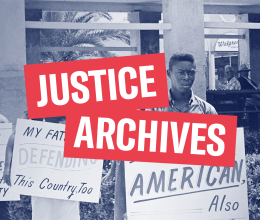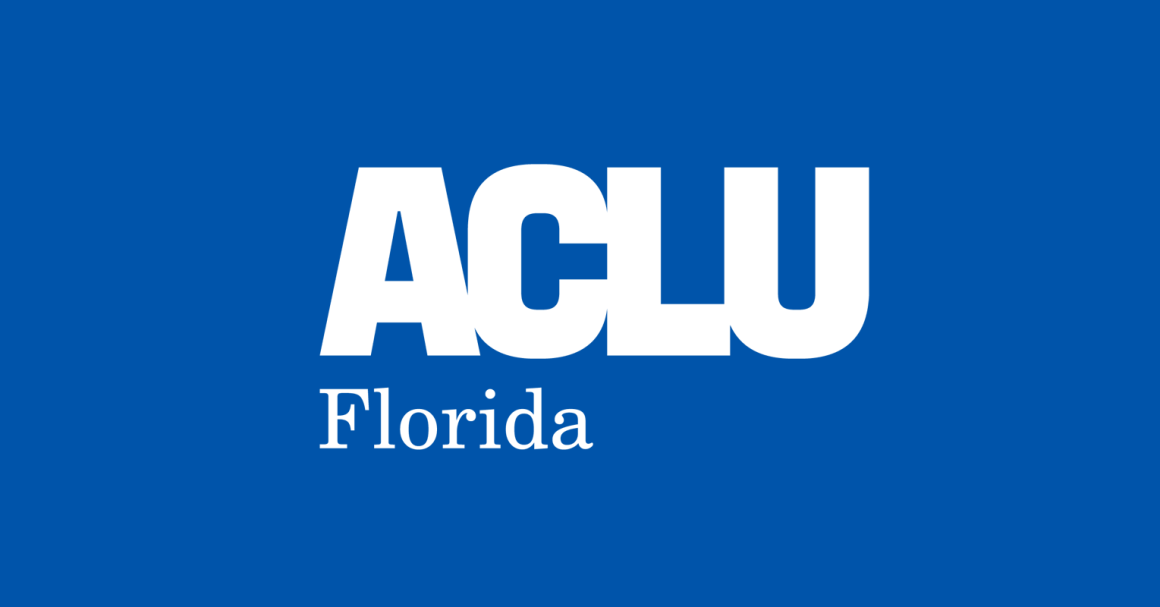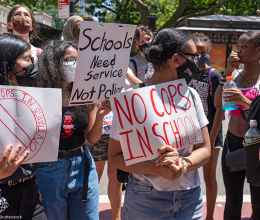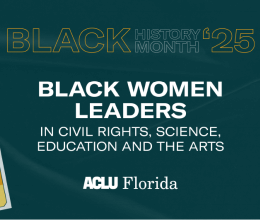
MIAMI, FL – Today, the Legal Defense Fund (LDF), American Civil Liberties Union (ACLU), ACLU of Florida, and Ballard Spahr filed a brief urging the United States Court of Appeals for the Eleventh Circuit to uphold a preliminary injunction blocking Florida’s H.B. 7 — also known as the Stop Wrongs Against Our Kids and Employees Act (Stop W.O.K.E. Act) — from being enforced in institutions of higher education. The Eleventh Circuit previously allowed the preliminary injunction, issued by a lower court, to remain in place until it issues a decision on the case’s merits.
The brief, filed on behalf of a multi-racial group of educators at Florida-based public colleges and universities, argues that the Eleventh Circuit should maintain the preliminary injunction order because the Stop W.O.K.E. Act is unconstitutional and discriminatory. The group is comprised of plaintiffs in the Pernell v. Lamb lawsuit, who filed their complaint and motion for a preliminary injunction last August and argued that the Stop W.O.K.E. Act severely restricts Florida educators from engaging in classroom instruction about certain issues related to race and gender.
“Today we urge the court to uphold the district court’s preliminary injunction order that currently blocks this discriminatory law, which targets Black professors and educators of color and stifles academic freedom on Florida campuses,” said Alexsis Johnson, assistant counsel of the Legal Defense Fund. “By imposing unlawful censorship in public university classrooms, this law suppresses and devalues the voices of people from historically marginalized groups, including Black, Brown, Indigenous, and LGBTQ+ communities, and denies Florida educators the opportunity to engage in robust discussion that is foundational to their teaching. In upholding this ruling, the court would be protecting and preserving the vital role that truthful and inclusive higher education plays in shaping the minds of our future generations.”
The lawsuit argues that the Stop W.O.K.E. Act violates the First and 14th Amendments by imposing viewpoint-based restrictions on educators and students, which are also unconstitutionally vague. Additionally, it argues that the Stop W.O.K.E. Act violates the Equal Protection Clause because it was enacted with the intent to discriminate against Black educators and students.
“All students and educators deserve to have a free and open exchange about issues related to race in our classrooms — not censored discussions that erases the history of discrimination and lived experiences of Black and Brown people, women and girls, and LGBTQ+ individuals,” said Leah Watson, senior staff attorney with the ACLU Racial Justice Program. “The First Amendment protects our ability to discuss and debate these ideas -- even when powerful political interests disagree -- and any effort to prevent these discussions violates free speech rights and has a chilling effect on academic freedom.”
“Last year, civil liberties in Florida were protected after the court ruled in favor of our higher education plaintiffs,” said Jerry Edwards, staff attorney of the ACLU of Florida. “Now, we hope that civil liberties will prevail once again. Our collective history includes the marginalized, both the harms done against them and their many contributions to this country. We cannot allow the ignorance of our politicians to trample the right to learn, the right to teach, and the right to express ideas with which the government personally disagrees. The decisions made in this case will impact generations to come.”
“Along with the LDF, ACLU, and ACLU of Florida, we believe it is important to support educators and students in their challenge to this unconstitutional censorship law,” said Jason Leckerman, Chair of the Litigation Department at Ballard Spahr. “Its viewpoint-based restrictions are vague and intentionally discriminatory, especially against Black educators and students.”
Florida is one of more than a dozen states across the country that have passed laws aimed at censoring certain discussions around race and gender in the classroom. As a result of the Stop W.OK.E. Act, which imposes harsh penalties for educators and institutions for violations, public colleges and universities across Florida have canceled or scaled back diversity and inclusion trainings and have taken down public-facing statements denouncing racism.
Read the brief filed in the Eleventh Circuit Court of Appeals here.







